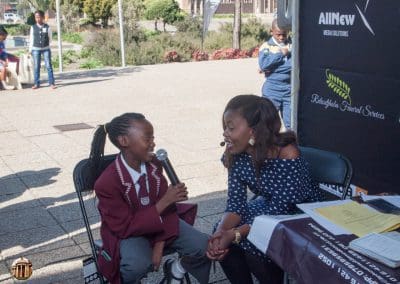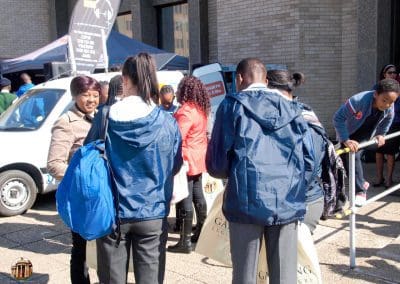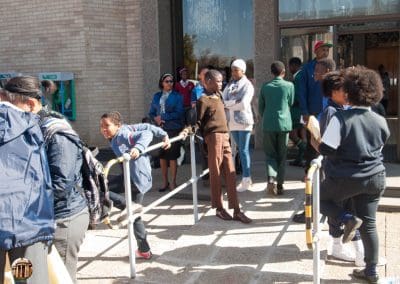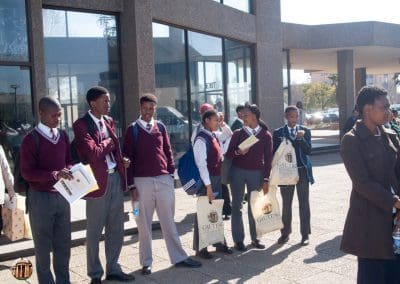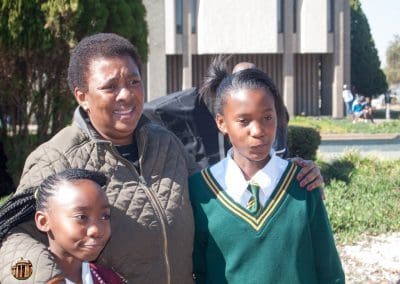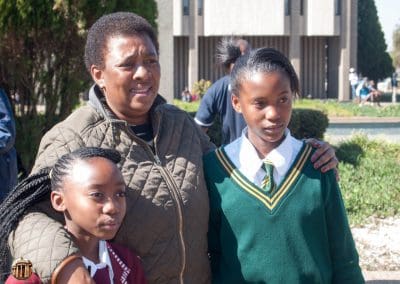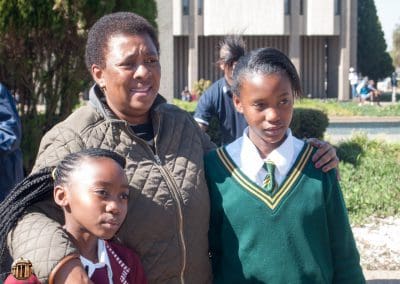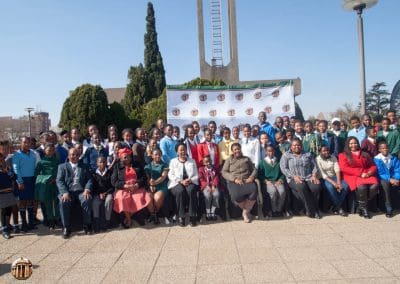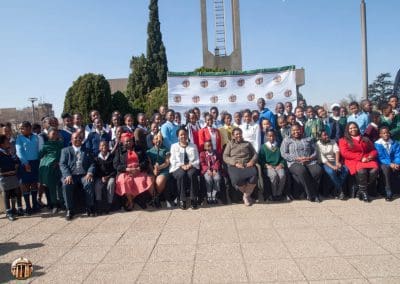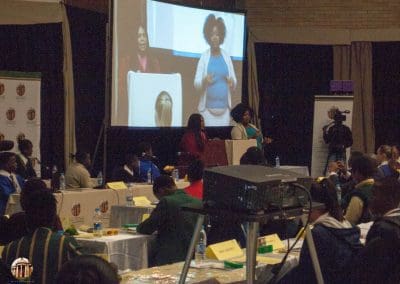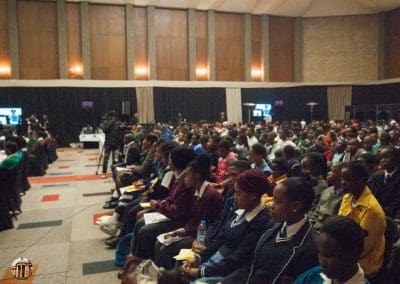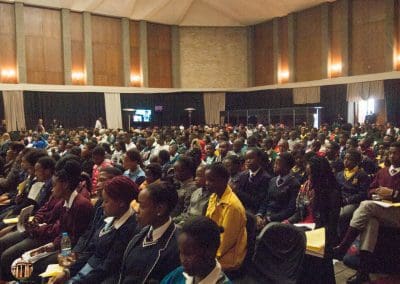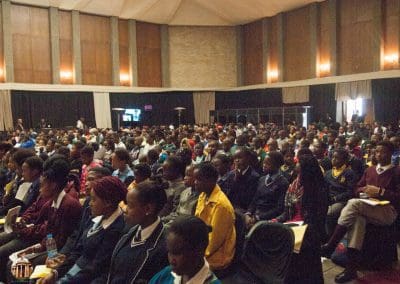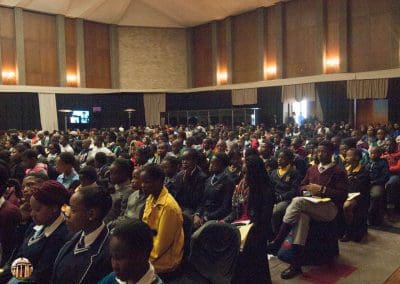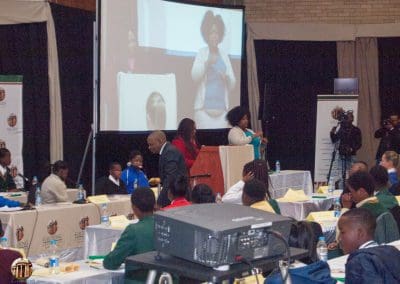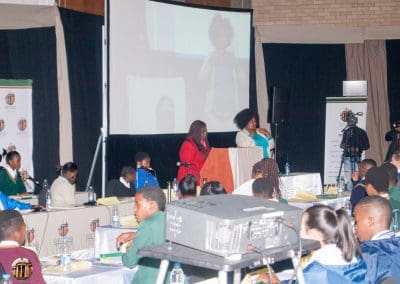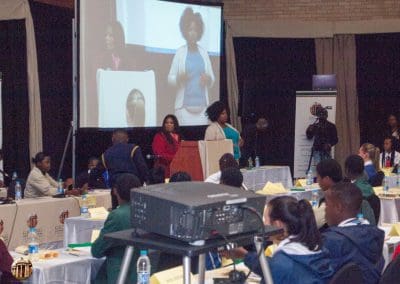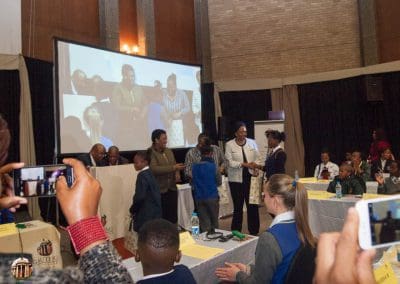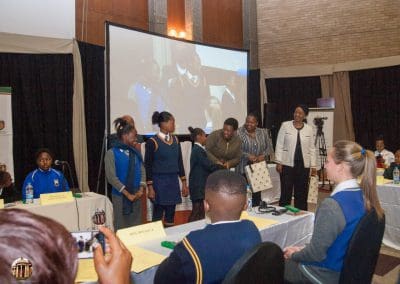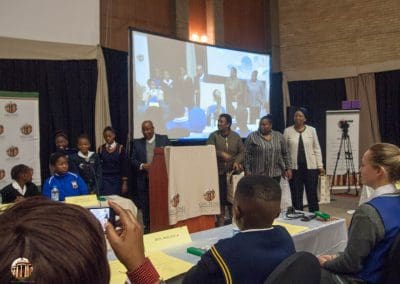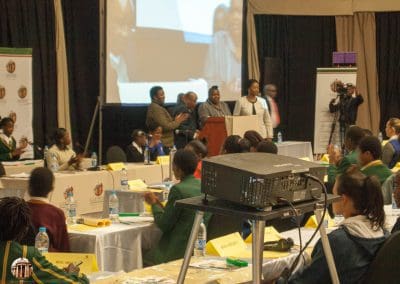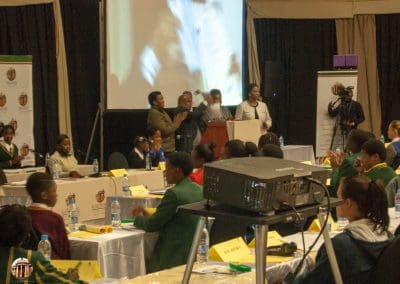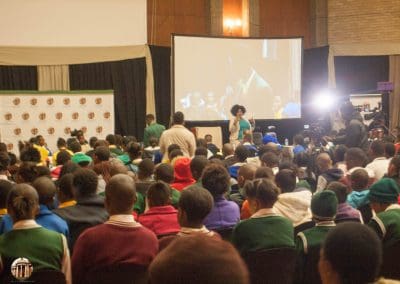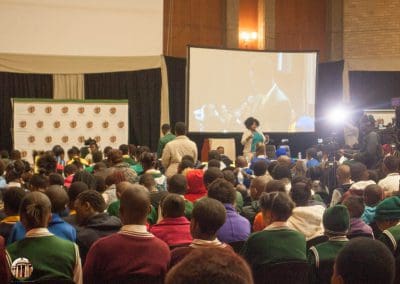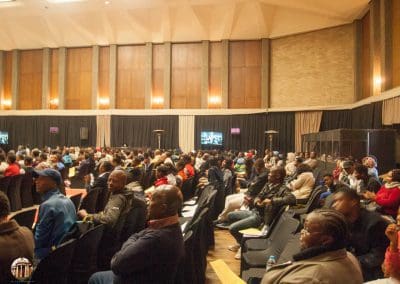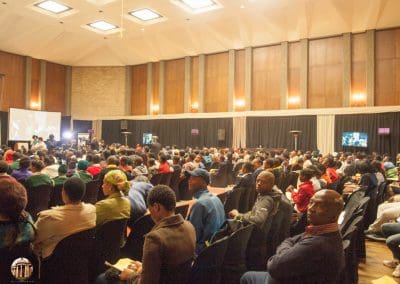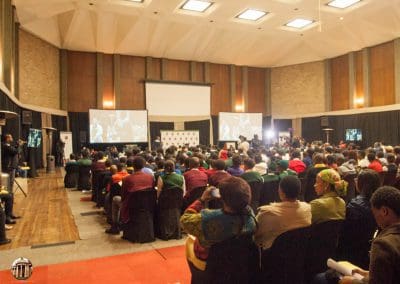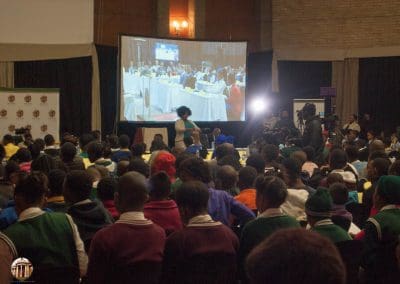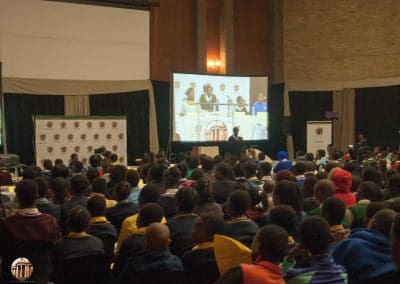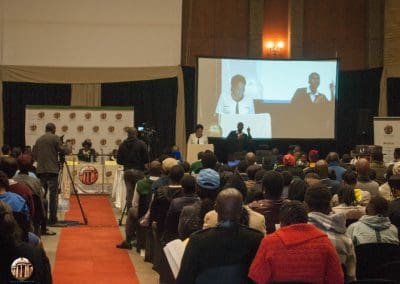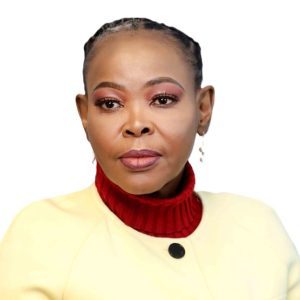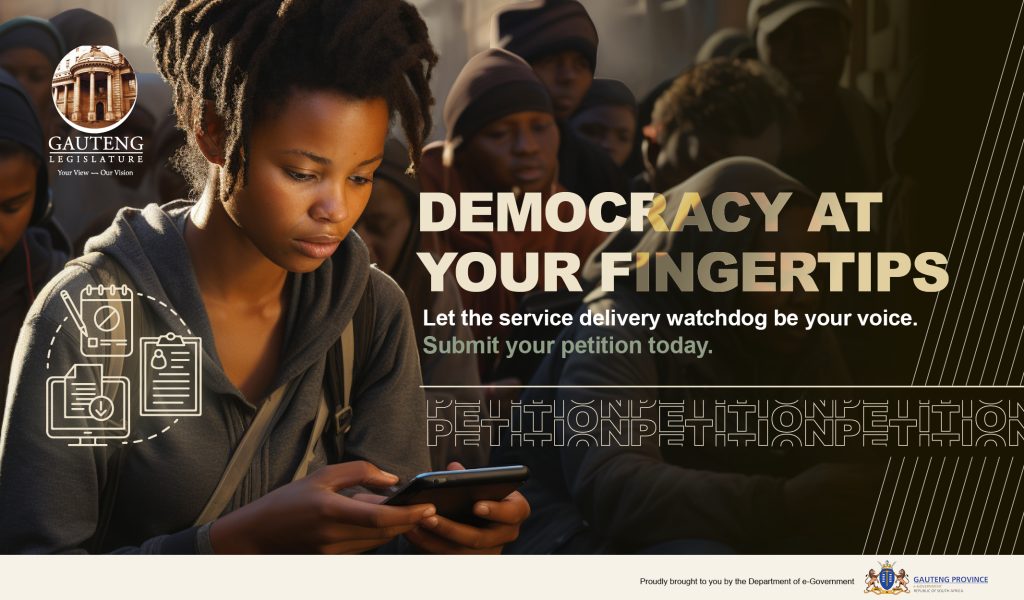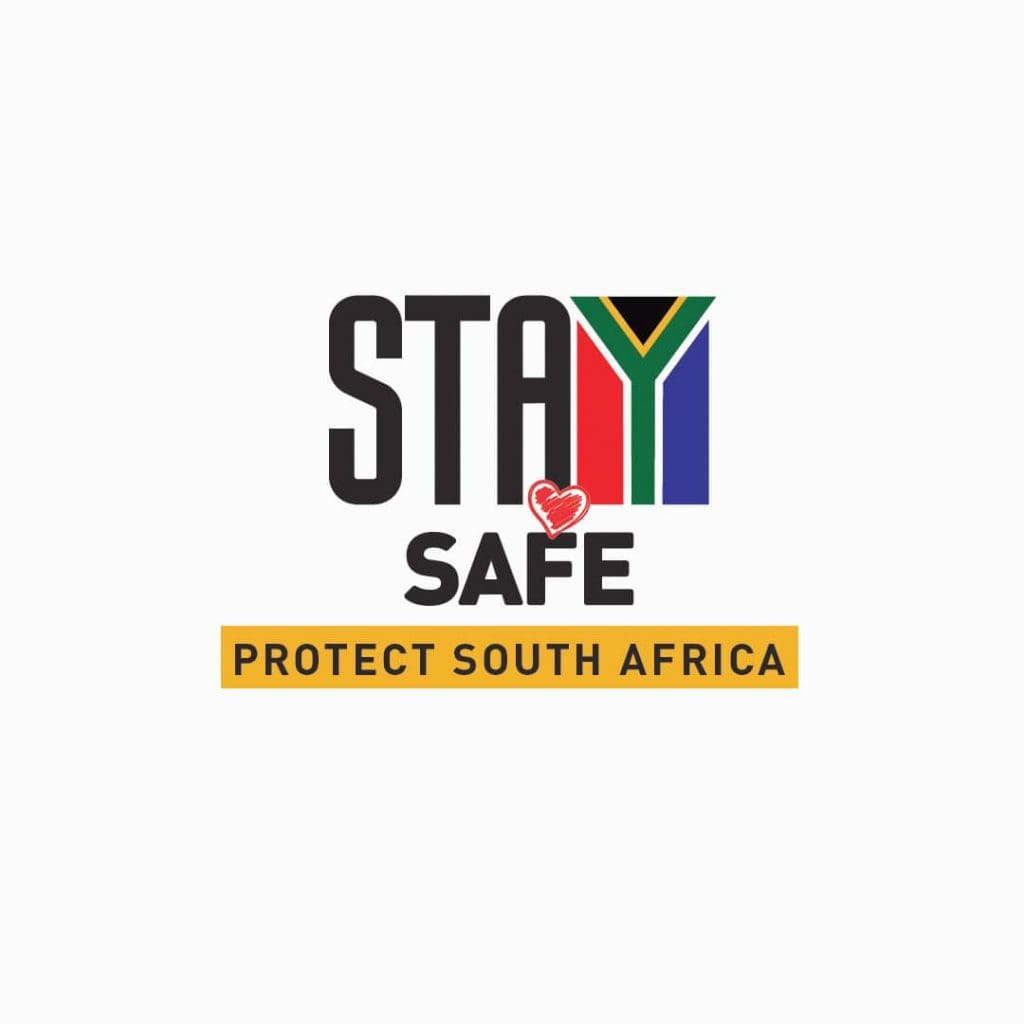The Constitution of the Republic of South Africa 1996 mandates the Legislature to conduct oversight, make laws and facilitate public participation. Children’s Sector Parliaments help us to monitor and evaluate the implementation of children’s rights, and to amend any policies that do not make positive impact in the lives of the children.
Children need special protection because they are some of the most vulnerable members of society. They are fully dependent on their parents and families, or the state when these fail for care and protection. As a result, the drafters of our Constitution have made children’s rights a priority – and have stated that the best interests of a child are the overriding concern when it comes to any matter affecting him or her.
The inclusion in the Bill of Rights of a special section on the rights of the child was an important development for South African children, most of whom had suffered under apartheid for many years. Some had been detained without trial, tortured and assaulted; many faced discrimination in healthcare, education and other areas.
This section gives children the right to: a name, citizenship and some form of care. Children need food and shelter, and should be protected from abuse, neglect and degradation. No child should work when under-age, or do work that would interfere with his or her education or development. Children should be jailed only as a last resort and should not have to share a cell with adults. They should not take part in wars and should be protected during conflict. The second sub-section, a very important clause, says a child’s interests are the most important consideration in any matter concerning the child.
Having a devoted section in the Bill of Rights does not mean children do not benefit from the rights in the others sections. The sections that deal with equality, human dignity, religion and health – as well as many others – are especially relevant and also apply to children. Other legislation that provides specific protection for children includes:
- the Child Care Act of 1983, which makes it a criminal offence if a person who has to maintain a child doesn’t provide the child with clothes, housing and medical care;
- the Basic Conditions of Employment Act of 1997, which makes it illegal to employ a child under 18;
- the Domestic Violence Act of 1998, which defines different forms of domestic violence and explains how a child can get a protection order against the abuser; and
- the Films and Publications Act of 1996, which protects children from exploitation in child pornography.
The inaugural children sector parliament was in 2015 at Donn Matemann Hall, Eldorado Park, in the City of Johannesburg Region. This first children parliament was graced by Premier of Gauteng Province, Mr David Makhura.




